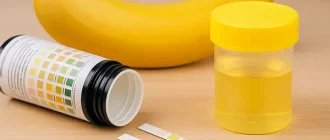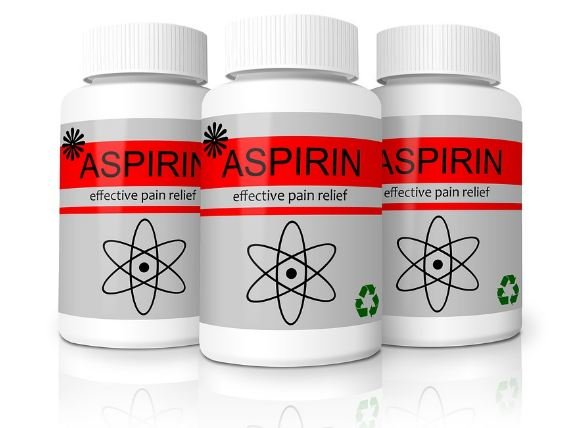Bladder control problems can affect people of all ages, but they are most commonly seen in elderly individuals. Conditions such as urinary incontinence can cause involuntary leakage of urine, leading to embarrassment and potentially affecting daily activities. Seeking medical advice and treatment can greatly improve the quality of life for those experiencing bladder control issues.
Who Requires Bladder Control Medications?
Below is an overview of the groups who may need these medications.
Individuals with Overactive Bladder (OAB):
- OAB is characterized by frequent urination, urinary urgency, and in some cases, urge incontinence. Those who find these symptoms disrupt daily life may be prescribed bladder control medication.
Elderly Patients:
- As people age, the likelihood of developing bladder control issues increases, often due to a decline in bladder elasticity and muscle strength.
Women Post Childbirth:
- Childbearing can impact the muscles responsible for bladder control, prompting a need for medications to manage symptoms of incontinence or frequency.
Patients with Neurological Disorders:
- Conditions such as multiple sclerosis, Parkinson’s disease, or spinal injury that affect nerve signals can lead to bladder dysfunction requiring medication.
Individuals Post-Prostate Surgery:
- Men who have undergone prostate surgery may experience changes in urinary control, sometimes necessitating the use of bladder control medications.
Those with Interstitial Cystitis/Painful Bladder Syndrome:
- This chronic condition causes bladder pressure, bladder pain, and sometimes pelvic pain. The exact cause is unknown, but bladder medications can be part of the treatment plan.
People Unresponsive to Non-Pharmacological Interventions:
- Some patients may initially try non-drug methods such as pelvic floor exercises, bladder training, or dietary changes. If these prove ineffective, medication might be the next step.
Assessment of the Need for Medication
| Condition / Situation | Likely to Need Medication? | Reasoning |
|---|---|---|
| Overactive Bladder (OAB) | Yes | To manage urgency, frequency, and incontinence |
| Elderly Age Group | Possibly | Due to age-related decline in bladder function |
| Post Childbirth in Women | Possibly | If pelvic floor exercises do not restore full control |
| Neurological Conditions Affecting Bladder | Yes | To address involuntary contractions and nerve-related issues |
| Post-Prostate Surgery | Possibly | If experiencing ongoing control issues |
| Interstitial Cystitis/Painful Bladder Syndrome | Yes | To alleviate pain and pressure |
| Unsuccessful Non-Pharmacological Methods | Yes | If lifestyle changes and exercises are not enough |
Types and Effectiveness of Bladder Control Medications
The efficacy of these drugs frequently relies on the specific type of urinary incontinence, the seriousness of the symptoms, and the overall health of the person. Presented below is a compilation that lists the main categories of medications for controlling bladder issues, along with their effectiveness.
- Anticholinergics
Usually, these medications are recommended for the treatment of overactive bladder (OAB) and urge incontinence. They function by obstructing particular chemical signals that induce spasms in the bladder, which often results in a sudden and pressing need to urinate. Examples include:- Oxybutynin (Ditropan XL, Oxytrol)
- Tolterodine (Detrol)
- Solifenacin (VESIcare)
- Fesoterodine (Toviaz)
- Effectiveness: Anticholinergics are generally effective for many patients, reducing episodes of urge incontinence and the frequency of urination.
- Beta-3 Adrenergic Agonists
A relatively newer class of medication, these drugs help relax the bladder muscle to increase storage capacity, thereby reducing episodes of OAB.- Mirabegron (Myrbetriq)
- Effectiveness: Clinical trials show that mirabegron effectively reduces the number of incontinence episodes and the frequency of urination while being well tolerated by patients.
- Tricyclic Antidepressants
While primarily used for depression, certain tricyclic antidepressants also help with bladder control by relaxing the bladder muscle.- Imipramine (Tofranil)
- Doxepin (Sinequan)
- Effectiveness: These medications are effective for some patients, especially those who have not responded to other treatments. However, they have potential side effects that may be more significant than other bladder control medications.
- Estrogen Replacement Therapy
Low-dose, topical estrogen in the form of creams or vaginal rings can help to reinforce tissues in the urethra and vaginal areas, improving incontinence in postmenopausal women.- Estradiol (Estrace, Vagifem)
- Effectiveness: The effectiveness can vary and may provide modest improvement in symptoms of urinary incontinence.
- Desmopressin Acetate
This medication is often used for treating nocturnal enuresis (bedwetting). It works by reducing the amount of urine the kidneys produce during the night.- Desmopressin (DDAVP)
- Effectiveness: It is particularly effective in reducing bedwetting in children and adults with nighttime incontinence.
- Alpha-blockers
For men with bladder control issues, particularly those related to an enlarged prostate, alpha-blockers can be helpful because they relax the smooth muscle found at the neck of the bladder and within the prostate.- Tamsulosin (Flomax)
- Doxazosin (Cardura)
- Effectiveness: Alpha-blockers are generally effective for treating symptoms related to prostatic obstruction, but they are not typically used for other types of incontinence.
Natural Alternatives for Bladder Control Medications
Bladder control issues can be both uncomfortable and inconvenient, yet not everyone is keen on or able to use prescription medications due to side effects, interactions, or personal preferences. Fortunately, nature offers its own array of solutions designed to help individuals manage their bladder health through more organic means. Below is a carefully curated list of natural alternatives that may provide relief and support bladder control:
- Pumpkin Seeds:
- Rich in omega-3 fatty acids and antioxidants, pumpkin seeds can help to strengthen the bladder muscles.
- These seeds contain phytosterols, which are known to reduce bladder activity.
- Kegel Exercises:
- Renowned for enhancing pelvic floor strength, Kegel exercises are a simple, medication-free way to improve bladder control.
- They can be done discreetly and at almost any time, requiring no equipment but consistency in practice.
- Capsaicin:
- Found in chili peppers, capsaicin has been studied for its potential to reduce urinary urgency.
- It’s thought that capsaicin affects the nerve fibers that send signals to the brain about bladder fullness.
- Magnesium:
- This mineral aids in proper nerve function and may help individuals who have difficulty emptying their bladder.
- Foods such as almonds, spinach, and tofu are excellent sources of magnesium.
- Buchu Plant:
- The Buchu plant, which has been utilized in South Africa for many years, is recognized for its ability to reduce inflammation and potentially alleviate urinary tract infections that can impact bladder function.
- Horsetail:
- The herb horsetail is utilized as a diuretic, aiding in the elimination of waste from the urinary system and enhancing the strength of the bladder.
- It could also help in the upkeep of the tissues that connect the bladder and urinary tract.
- Gosha-jinki-gan (GJG):
- This ancient Japanese herbal mixture has displayed potential in decreasing the need and frequency of urinating.
- Made of several different herbs, it’s thought to target bladder muscle functionality.
- Cleavers:
- Often used in traditional medicine, cleavers is a diuretic herb that may support the urinary tract’s lymphatic health and improve overall bladder function.
- Water Intake Adjustment:
- Although it might seem counterintuitive, adjusting water intake can improve bladder control.
- Too little water can irritate the bladder, while too much can cause excessive urgency.
- Vitamin D:
- Adequate levels of Vitamin D are crucial for muscle health, including the pelvic muscles involved in bladder control.
- Sunlight exposure and foods fortified with Vitamin D can boost levels.
- Quercetin:
- A natural pigment found in many fruits, vegetables, and grains, quercetin may help reduce bladder inflammation and improve symptoms of interstitial cystitis.
Conclusion
Bladder control issues can significantly affect quality of life, and bladder control medications are one effective management strategy. It is important for individuals who believe they may require such medications to consult a healthcare professional for a proper diagnosis and treatment plan. A personalized approach is critical, as conditions vary widely and not everyone with bladder control problems will need medication. Healthcare providers will determine whether medication is the best course of action based on individual symptoms, overall health, and response to other treatments.
About the Author
Reyus Mammadli is the author of this health blog since 2008. With a background in medical and biotechnical devices, he has over 15 years of experience working with medical literature and expert guidelines from WHO, CDC, Mayo Clinic, and others. His goal is to present clear, accurate health information for everyday readers — not as a substitute for medical advice.







